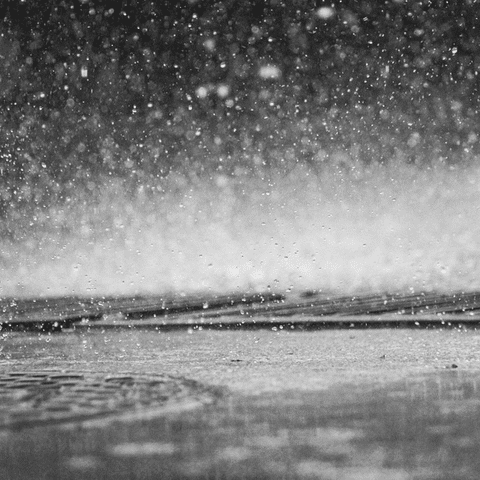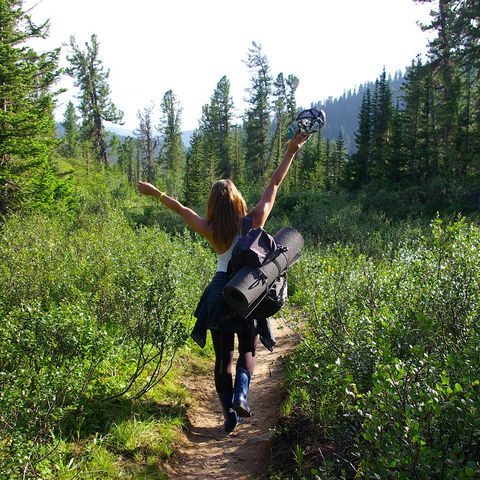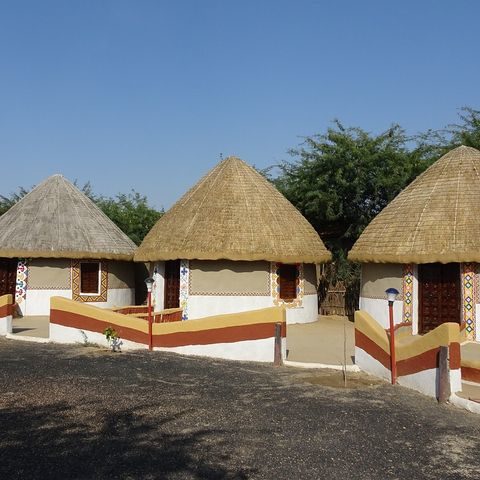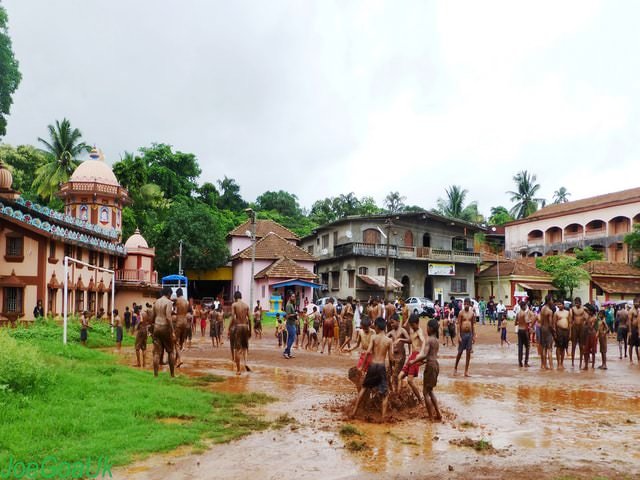
July is the peak of the Indian monsoon season,
and for a lot of us this means
staying put at home out of fear of leeches,
avoiding carrying wet backpacks,
and other unsavoury factors that the rain ushers in.
But what if there are experiences you could have
that you would not get at any point?
Indian festivals for example.
No,
not the famous ones like Dussera or Navaratri.
We are talking about uncommon and quirky Indian festivals
that are celebrated with equal gusto across India.
Here are a few
Indian festivals that you must not miss out on in July.

Chikhal Kalo festival pic courtesy DazlingGoa
Touxechem and Chikhal Kalo,
Goa
Make July memorable by taking part in Touxechem and Chikhal Kalo,
two of Goa’s most enjoyable Indian festivals
that remain largely unknown outside Goa.
Touxechem sounds French or Mexican but
it’s simply derived from the word tauxem meaning cucumber in Goan.
Touxechem is a big festival in a small village
called Talaulim located in Old Goa.
It is celebrated
in the church of St Anne which is more than 400 years old.
This indian festivals follows the unusual tradition of
giving cucumbers to St Anne in return for being blessed with a child.
Attended by Catholics and Hindus alike,
this Indian festivals is a huge day for the locals.
Enjoy the festivities including the food,
which includes Goan sweets like khaje, sweet sticks
that is a delicious blend of ginger,
red chilli powder and jaggery.
And of course,
there’s plenty of cucumber to be bought.
Nobody really knows when the festival of Chikhal Kalo began
but the village of Marcel in Ponda has a lot of fun celebrating it.
Organized in front of the Devaki-Krishna temple,
the only one in India,
Chikhal Kalo celebrates the playful antics of the child Krishna.
Men and boys oil themselves,
pray at the temple,
and then begin the various mud games.
There are delicious sweets and snacks served on the side
for onlookers and participants alike.
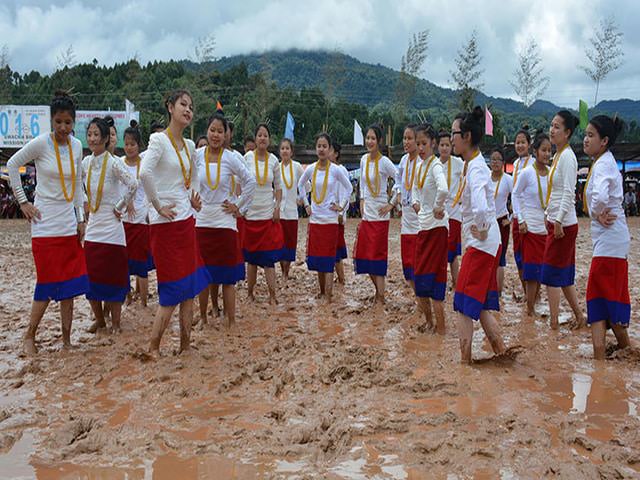
The Dree Festival pic courtesy The Northeast Today
Dree Festival,
Arunachal Pradesh
The Apatanis are a small tribal group living in
the Ziro valley in Arunachal Pradesh
and are one of the few remaining people who worship nature.
Every year in July they celebrate the Dree,
which is an agricultural festival and is held to appease
the sun and moon gods to avoid famine.
It’s a colourful riot of eating,
drinking, dancing and music
as well as ritual animal sacrifices..
Enjoy special drinks like millet and rice beer
and food ranging from Chinese dishes to local fare.
Behdienkhlam Festival,
Meghalaya
Another tribal indian festivals,
Behdienkhlam is celebrated by
the Pnar tribe of Meghalaya in July right after the sowing period.
The festival seeks blessings from local gods for a good harvest,
prosperity,
and happiness.
A series of rituals take place including young men beating houses
with bamboo sticks to drive away evil spirits.
People dressed in all their finery display their skills in art,
craft,
dancing
and in sports when
a traditional game of football using a wooden ball is played.
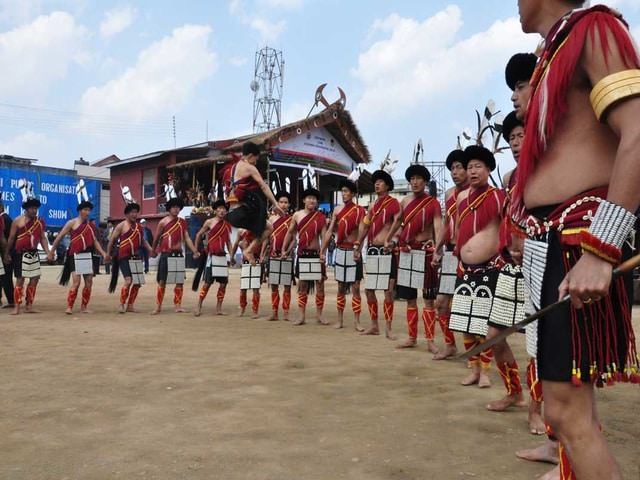
Tuluni Festival pic courtesy Tourism Nagaland
Tuluni Festival,
Nagaland
Tuluni is celebrated by the Sumi Nagas,
a tribe in Nagaland.
Celebrating Litsaba,
the deity of fruitfulness and plenty.
Tuluni is a time of jollity
and fervour marked by prayers and offerings
as well as the eponymously named rice beer,
which is served in bowls fashioned out of plantain leaves.
Various food and cultural competitions,
and dances take place while engaged couples
get married amidst feasting and much gifting.
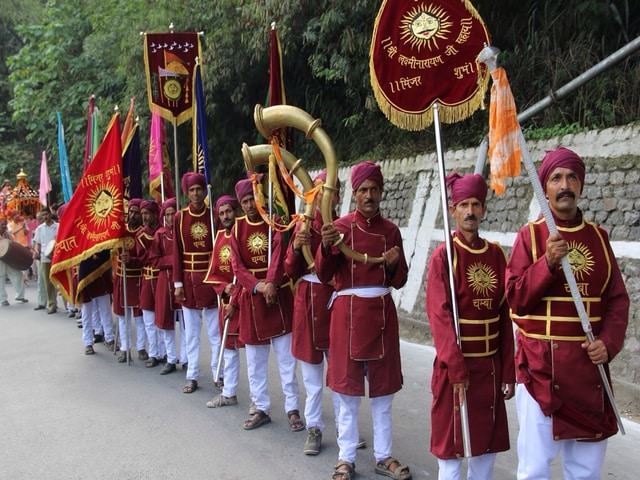
Minjar Festival pic courtesy Hillpost
Minjar Festival,
Himachal Pradesh
Minjar is a centuries old indian festivals
that is celebrated in the town of Chamba in Himachal Pradesh.
While various legends are associated with the origin of the festival,
today it is celebrated chiefly as a harvest festival with minjar,
or maize in the local language.
Minjar also honours the deity Raghuvir who is an incarnation of Lord Rama.
Festivities include sports and games,
a display of skillsets in various fields,
and a fair where traders sell local handicrafts.
People exchange gifts including stalks of minjar,
and enjoy performances of folk music like Masadha folksongs, enchali etc.
On the last day of the festival
a colourful procession takes the idol of Raghuvir
and immerses it in the river Ravi.
Enchanted?
Get in touch with us at connect@trippintraveller.com
and we will help you plan the entire trip!
0
